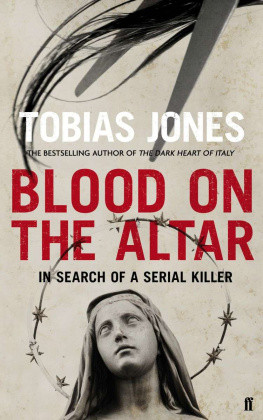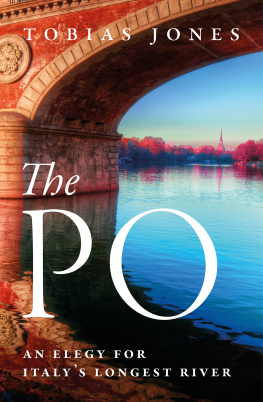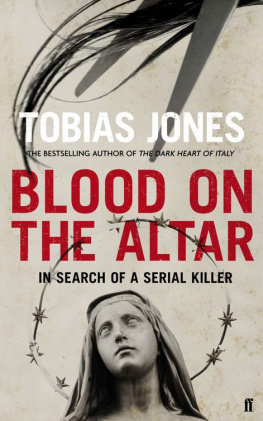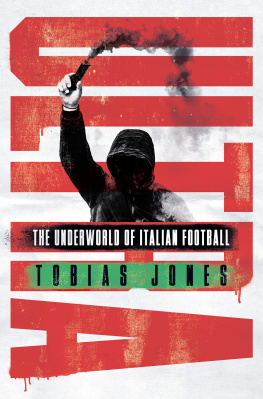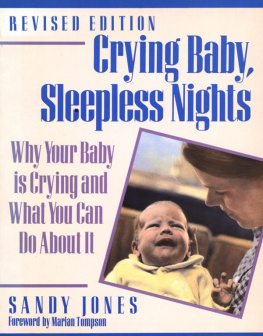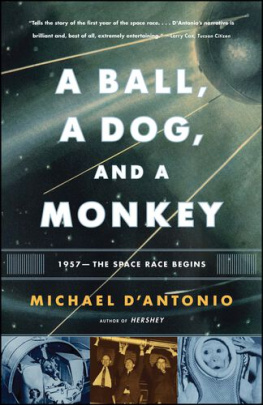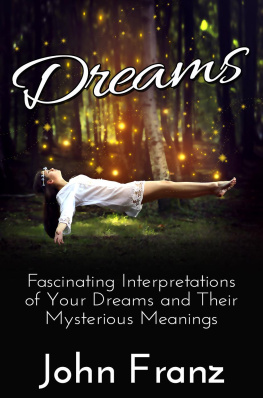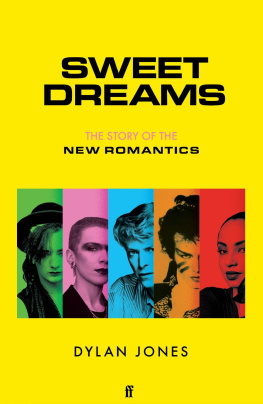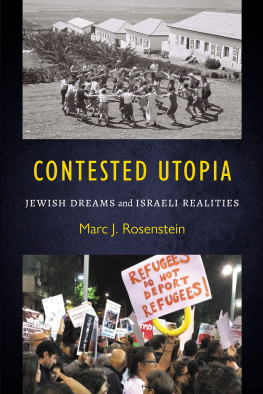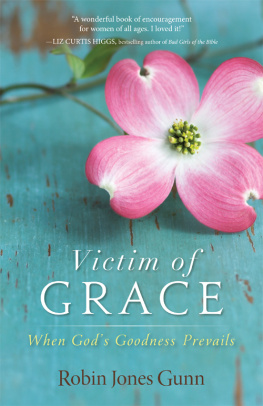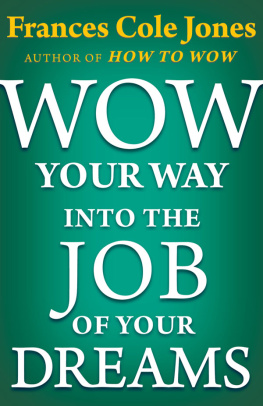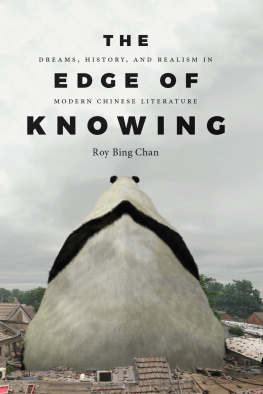I am, above all, grateful to everyone out there who let us come and stay: to the members of the communities mentioned here who were unfailingly hospitable. I feel very fortunate to be published by Faber: the trust, intuition and guidance of Walter Donohue and Stephen Page have been invaluable. Georgina Capel, Philippa Brewster and everyone else at Capelland continue to make writing unexpectedly enjoyable. Maia Bristol and Justin Wildridge have been stalwarts. Frankie Elston, Christopher Lewis and Edward Bailey gave excellent advice. Thanks to all the other people who lent me money or books, bought us meals or beers or just suggested leads: Daniela Calebich, Keith Jones, Rickie B, lo Zivo, il Gallo, il Davo, lAlbe, Elisabetta Salvini, Harry Seekings, Euan Wallace, Lisa Kerr, Enrico Basaglia, Stefano Mercurio, Mario Casartelli, John Foot, Richard Pendlebury, Diego Saglia, Richard Hepwood, Alfred Giannantonio, Glen Alessi, Erica Scroppo and Richard Newbury. Im very grateful to various commissioning editors in London, Milan and Rome in particular to Jacopo Zanchini and Giovanni De Mauro who have made me feel a little less out of the loop over the last two years. My siblings, Dave and Vandana and Paul, have been sterling. Im indebted to The Society of Authors for a generous grant from the K Blundell Trust which enabled us to linger in places rather than racing through. Finally, Im full of admiration and respect for my two travelling companions, Francesca and Benedetta. Any errors are, obviously, all mine.
I originally intended this book to be only about those alternative communities that live on the fringes of our society. And that is still, in some ways, what the book is about: its a series of journeys to modern, self-contained communities, a pilgrimage to centres of depending on your taste idealism or escapism. Ive travelled to the far-out and far-away to listen to people describing the strange, surreal beauty of their dreams.
But I havent written about the counter-culture or about hippie communes and dysfunctional ashrams. There are already hundreds of books like that. Using a stand-offish voyeurism, they have always had a similar narrative trajectory: whether the writer uses the term utopia (somewhere thats nowhere) or commune (slightly sixties) or Intentional Community (the dull, modern denotation), the aim of the writer is invariably the same: to pry into alternative types and conclude that theyre doolally, if not actually dangerous. The books may be more subtle in the way they say so, but the bottom line is normally gentle derision: they tend to echo Samuel Johnsons weary warning about those who listen with credulity to the whispers of fancy, and pursue with eagerness the phantoms of hope And understandably so: its much easier to sell a book which shores up our complacency by denying the alternatives than one which challenges it by quietly listening to them.
I wanted, though, to cross-examine the values by which we, in the so-called real world, live. That, at least according to Matthew Arnold, is what culture means; it implies turning a stream of fresh and free thought upon our stock notions and habits.
I wanted, for once, to be idealistic; I hoped to find imagination rather than resignation.
It was more than just idealism per se that aroused my curiosity. Another thing that the majority of Thatchers children have never experienced is, possibly, even more elusive: a sense of community. Our society is, by now, so atomised, privatised and individualised that most people under, say, thirty, have no idea of what a community , a real community, is truly like. I, along with most of my peers, had only heard of this quaint idea from the wistful descriptions of elders who had grown up in one. There was, moreover, an interesting connection between idealism and community. mile Durkheim suggested that idealism only ever emerged through the communal because it was only at the school of collective life that the individual has learned to idealise. It is in assimilating the ideal elaborated by society that he has become capable of conceiving the ideal. an acceptance of a limitation on freedom? As I spent weeks and months living in these communities, I began to be fascinated by the debates about the permeability of the communities, about different forms of leadership, about alternative ways of structuring families and finances.
Slowly, the vision of the book became bifocal. The more time I spent in these unusual villages, the more I found myself outside what Coleridge called the lethargy of custom. I was at one remove from reality, beyond the habitual and mechanical movements of normality. So the focus of the book became not only the communities themselves, but also, from their vantage point, our own, now-defamiliarised, world; that world against which they were defining themselves. I wanted, in short, to discover if the credulity and the foolish pursuit of phantoms were actually our side of the fence, not theirs.
In shifting the focus between these for want of a better word utopias and the real world, one theme kept coming back again and again. I realised (one shouldnt probably think about such things, but I did) that to write about this theme was to forfeit the sympathies and offend the tastes of the vast majority of readers. And yet it was, I reluctantly admitted, the key which unlocked the whole book. It provided the clearest, black-and-white contrast between the communes and the real world, it was at the epicentre of what community, at least in the past, has always meant. It was, according to taste, the greatest or else the daftest idealism of them all: religion.
It was only through acknowledging that religion, rather than politics, was the choreographer of these communities that their difference and distinction emerged. It was that which really set them apart and gave me, as I moved between the real and the removed worlds, the stark contrast between the sacred and the profane . My intention wasnt to test their doctrinal logic or veracity. It was something much simpler: I merely wanted, as with the yearning to rub shoulders with idealists, to experience what religion feels like. Again, religion is something with which only a minority of my generation has had any contact; even as far back as the 1940s, society had been so thoroughly cleansed of belief that Dietrich Bonhoeffer wrote: we dont worship anything now, not even idols. In that respect were truly nihilists. dealt with at all in the mainstream media, is dismissed out of hand as the redoubt of cranks and authoritarians; tiny articles on religion are only commissioned if theres the suitable peg of sexual orientation or gender. In certain circles, if someone confesses to being a believer, theyre met with the same fear and loathing that was once reserved for atheists. Theres a sort of theophobia at large which quickly becomes evangelical and its rarely long before certain words come out, intolerant and fundamentalist top of the list. At a time in which understanding religion is, for obvious reasons, more important than ever, there seems to be a knee-jerk derision from the sophisticated corners of the country. The melancholy, long, withdrawing roar of the sea of faith (described in Arnolds Dover Beach) happened so long ago, and the retreat of the tide has been so relentless, that some of us have never even seen the sea. We have no idea what it was like to live in an age in which religion seeped into all corners of the community. That was the opportunity which these communes afforded. I could spend time with people who looked to Jacobs, rather than the property, ladder; with people who displayed animation rather than anomie.


